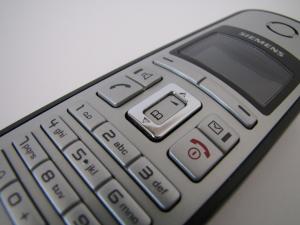Ofcom introduces protections for broadband customers during power cuts
 New guidance has been populated by telecoms regulator Ofcom to ensure consumers using broadband-based phone services to make calls can still access emergency services in the event of a power cut.
New guidance has been populated by telecoms regulator Ofcom to ensure consumers using broadband-based phone services to make calls can still access emergency services in the event of a power cut.
Among the key principles of the guidance, Ofcom now requires providers to take a proactive approach by identifying their customers who depend on their landline for communication and offer a suitable solution at no additional cost.
At the moment, existing rules from Ofcom require all providers to ensure they have the necessary measures to ensure their customers are able to contact emergency services even in a power outage. The additional protections have been unveiled to ensure those users relying purely on broadband are not disadvantaged and are able to access emergency services when needed, regardless of the power situation.
Traditional corded phones provide the ultimate solution as they can be used to make calls regardless of a power outage in the area as the source of power comes from the local telephone exchange. However, the shift to broadband-based voice over IP (VoIP) call technology in the recent years has required providers to think of other alternative solutions. These generally require mains power to work, so when there is a power failure, customers will not be able to make calls even to emergency services.
With the new guidance from Ofcom, companies will now need to put in place additional protections to ensure these customers are able to reach emergency services in a power failure.
In its guidance, Ofcom stated: "All landline customers that do not have an alternative means of contacting emergency organisations in a power outage at the home should be offered a solution that allows them to do so."
Providers will need to openly communicate with their customers and ensure that all VoIP users are aware of the constraints and the potential solutions so, in the event of power failure, they are not left stranded.







